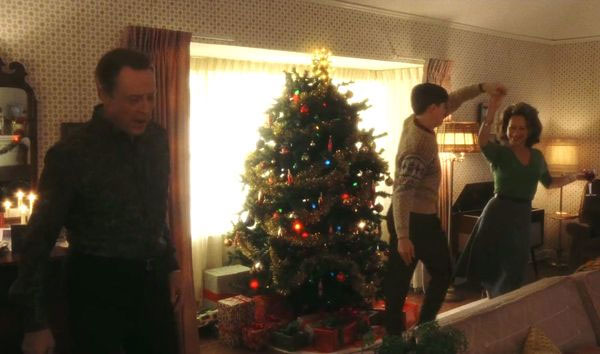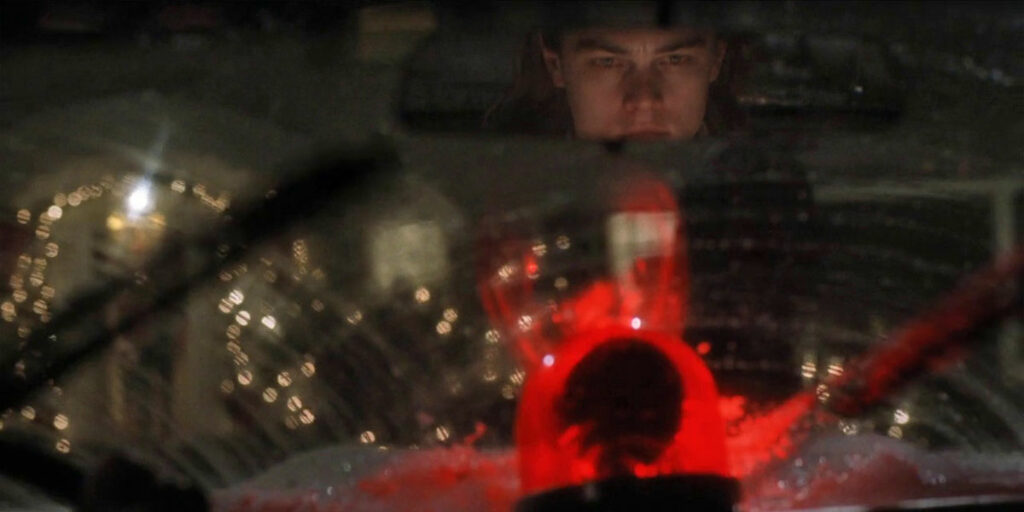Catch Me If You Can is a late-career triumph from Steven Spielberg that also deserves to be considered as one of the most affecting Christmas movies.
The following analysis goes into heavy spoilers for Catch Me If You Can.
Die Hard is a Christmas movie. The discussion is over. Now, if you’re particularly passionate on this issue you might already be scrambling for reasons to refute the point. Common arguments look at how the story taking place on Christmas has no real impact on the plot, that any ideas and themes present don’t typically fall in line with the traditional holiday fare, and that the film lacks the soft cheery aesthetic of other films in the canon. But consider the fact that the one time a year that will reliably have people talking about the 1988 film is the Christmas season, even if it is to debate the merits of such a classification. Die Hard has become so associated with the holiday itself that the proponents have won by sheer force of exposure and we can no longer separate the time of year from the film itself.
All of this is to say that, while I don’t anticipate this piece immediately catapulting Spielberg’s 2002 magnum opus Catch Me If You Can into the conversation alongside Home Alone and Elf, I’d like to at least get the ball rolling. I want to generate enough discussion that, over time and across many arguments, the film is able to take its rightful place as a holiday classic. Because make no mistake: Catch Me If You Can is one of the best Christmas movies of the past twenty-five years, and it deserves to be remembered as such.
Catch Me If You Can tells the mostly true story of Frank William Abagnale Jr. (played to perfection by a post-Titanic Leonardo DiCaprio) who, after running away from his family, successfully impersonates a Pilot, Doctor, and Lawyer all before the age of twenty. Tom Hanks plays the role of fictional FBI agent Carl Hanratty who pursues Abagnale, and Christopher Walken (also in a career best performance) takes the role of Frank’s father. The film spans multiple years as Abagnale moves from scheme to scheme while also trying to reconcile his parents’ divorce, brought on by his mother’s infidelity and his father’s reluctant acceptance of their divorce.
Fathers who fail their children, along with the general breakdown of the traditional nuclear family, are perhaps the most famous throughlines in Spielberg’s filmography. It began with Jaws and Chief Brody (Roy Scheider) struggling to keep his marriage afloat amidst the film’s deadly shark attacks and climaxed with his recent masterpiece The Fabelmans, which almost entirely focuses on the disintegration of the marriage between Spielberg’s mother and father. Catch Me If You Can fits nicely into this tradition, and, outside of The Fabelmans, it’s his most direct look into the topic, as the entirety of the emotional arc rests on Frank Jr. accepting his parents’ divorce.

But what does this have to do with the argument that Catch Me If You Can is a Christmas movie? If Spielberg has spent the last five decades honing and refining these themes of broken families, then what makes this film special and what is noteworthy about its holiday setting? To answer these questions, we need to look at each scene that takes place during Christmas and how it reveals new layers in the relationship Frank has with both his father and Hanratty. In doing so we will be able to see how Spielberg (along with screenwriter Jeff Nathanson) uses the holiday throughout the movie to strengthen the film’s themes and subsequent emotional impact.
For the first hour of Catch Me If You Can, the film doesn’t spend many scenes at Christmastime. The most memorable sequence set during the holiday season comes in at the eleven-minute mark and consists mostly of the Abagnale family pre-divorce, enjoying each other’s company. Frank Sr. explains to his son how the couple came to be, and his mother Paula (Nathalie Baye) shows off the dance moves that caught his attention. It’s a small scene, and you’d be forgiven for forgetting its existence. But this scene is both the only time in the first hour set at Christmas and the only scene completely dedicated to showing the Abagnale family as happy and functioning. It also serves to reinforce common ideas associated with Christmas, that of families coming together in peace and harmony. Spielberg and Nathanson use this scene as a jumping off point for the rest of the film, making sure to return to the 25th when they need to highlight the dysfunction of Frank and his parents in the aftermath of the divorce.
The next time we return to the Christmas season comes almost fifty minutes later, at around the hour mark. In the time between these two holiday scenes, Frank Jr. has begun his life of fraud, garnered the attention of FBI Agent Hanratty, and had a meeting with his father in which he tried to repair his parents’ broken relationship. Frank Jr. has an established relationship with both men, but when we return to Christmas (specifically Christmas Eve), Frank chooses not to call his father but instead contacts Hanratty at the FBI. The scene (one of my favorites in the film) involves the two characters verbally sparring while “Mele Kalikimaka” plays softly over the radio. Frank offers up his location to Hanratty, who refuses to take the bait, and then questions why his most wanted suspect would call him on Christmas. It takes a moment before the answer comes to both him and the audience. Frank is calling Hanratty because he has no one else to call. Had the scene taken place on any of the other 364 days of the year, Hanratty would not have had a reason to question Frank’s motives and thus we never would have been able to see just how lonely Frank Jr. is, that even on Christmas Eve his family is so broken that reaching out is impossible.
We return to Christmas Eve thirty minutes later (for those keeping track, we are now ninety minutes into the film) for two separate scenes between Frank Jr. and the two most important men in his life. Frank Jr. is now engaged: he wants to settle down, start a family, and leave his life of crime behind him. He meets his father at a bar and asks him and his mother to attend the wedding. The only problem is that Frank’s mother is now married to the man she cheated on Frank Sr. with, the Abagnale family is now well and truly broken, with no hope of recovery. Though this moment doesn’t use Christmas as part of the scenes conflict, it does allow this particular plot beat to stand in direct contrast to the earlier scene that showcased Frank Jr. and his parents as a whole unit. Once again, the ideas of togetherness during the holiday season are subverted by a scene that shows just how broken the film’s family unit is.
Right after this scene, and still on Christmas Eve, Frank Jr. calls Hanratty and asks that the FBI stops pursuing him. He wants to settle down and start a family, and we can infer that this want stems from witnessing his own parents’ failures and desiring to do better. Of course, one does not simply steal four million dollars from the federal government, and Hanratty refuses to give up the chase, catapulting the narrative into the third act.
The final Christmas Eve scene comes at the two-hour mark and serves as the climax to both emotional throughlines, Frank’s inability to process his parents’ divorce and Hanratty becoming the father figure Frank never knew he needed. It’s one year since the last Christmas scene; Frank has finally been caught for good and is currently being extradited back to the United States. While on the plane ride back, Frank asks Hanratty what has become of his father during the last twelve months, and after much pressuring it is revealed that Frank Sr. has died. Distraught that the only man in his life that ever understood him is gone, Frank Jr. escapes from the plane and runs to his mother’s house. As Nat King Cole’s “The Christmas Song” plays, Frank Jr. finally realizes that his mother has not only moved on from his father, but is all the happier for it.
When the police finally catch up to Frank, it is Hanratty who shows grace and makes sure that Frank is escorted back to prison without his mother seeing him. The scene takes place on a snowy lawn, is lit by Christmas lights, and is set to one of the most iconic holiday songs of the past century: it could not possibly be any more of a Christmas moment. It also serves as the emotional climax of the story: Frank has finally come to terms with the dissolution of his family and finally recognized Hanratty as the closest thing to a father figure he has. This sentiment is reinforced in the film’s epilogue, which finds Frank and Hanratty working together to prevent bank fraud for the FBI. In these scenes Hanratty becomes a mentor figure to Frank, showing him the ropes of the FBI and proving to be an intellectual equal to Frank, something he repeatedly wanted from his own father but always failed to obtain.
Through these five separate scenes, we see that Catch Me If You Can uses both the aesthetics and common ideas of Christmas to add additional weight to Spielberg’s classic story of a family falling apart. Christmas is more than a setting for the movie: it’s the central motif that directly develops the film’s ideas and character relationships, and the film would look very different without it. Catch Me If You Can deserves to be mentioned in the same breath as It’s a Wonderful Life, Home Alone, and yes, Die Hard, as classics of the genre. And hopefully with time we will be able to recognize it as one of the best Christmas movies ever made.
Catch Me If You Can is now available to watch on digital and on demand. Read our reviews of Steven Spielberg’s The Fabelmans, West Side Story, Jaws, Duel, Jurassic Park, Ready Player One, E.T. the Extra-Terrestrial, and The Terminal.

